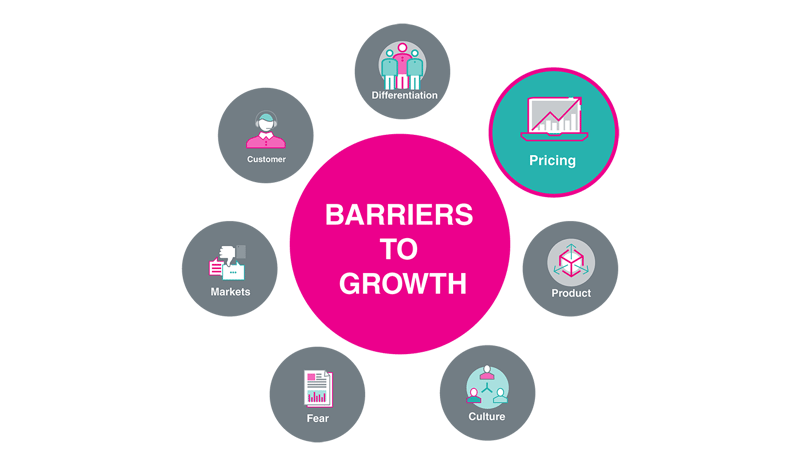To non-marketing people, marketing is a somewhat vague concept. Some people even go so far as to call it “fluffy.” It’s often perceived as a “nice to have” instead of the ‘mission critical’ function it actually is. Because clearly, marketing people do nothing more than play around all day on social media!
How did this happen? Marketing is actually an essential wheel in the giant cog of sales. Life would be much harder for the sales teams without marketing. And the guys on the shop or factory floor would have a lot less to do if the marketing people stopped doing their jobs properly.
As marketers, we obviously need to do a little marketing ourselves! Marketing needs more marketing!
Marketing is about effective communication, providing value and understanding human psychology. It’s up to us to profitably identify, anticipate and satisfy our customers’ needs.
But we also have to be just as accountable as every other department. At any given time, marketers should be able to tell you what they're doing and why - and how their efforts are improving results for the business.
This is why a Marketing Dashboard is so invaluable. We’ve seen dashboards that must have been modelled on the cockpits of a commercial airliner, and others that consist of nothing fancier than a monthly email. But at the end of the day, what’s really important is this:
A marketing dashboard needs to clearly show the results you’ve achieved, and justify the costs involved in achieving them.
What Does A Marketing Dashboard Look Like?
There are several elements that should feature on every marketing dashboard, regardless of how humble or sophisticated it is:
ROI And Client Retention
Essentially, this is the most basic function of any marketing dashboard. Calculating your ROI (return on investment) involves comparing your budget to your output. If you have an eCommerce facility, It also needs to show things such as:
- How many people visit your website?
- How many then go on to the Ordering Page?
- Of those, how many actually place an order?
- How much revenue was generated?
These figures then need to be compared to your marketing budget.
You might like: What is Marketing ROI and why does it matter?
It’s also important to look at client retention rates – how many visitors are repeat customers, and how many of them are actively engaging with your business by subscribing to your newsletter, for example – and how much they spend on average over time.
Cost Per Acquisition, Lead Generation And Activity Metrics
Different marketing campaigns have different goals, but at the end of the day, every company wants more leads. They need to be the right kind of leads, however – ones that turn into customers who spend enough to justify the cost of acquiring them.
If brand building is one of your aims, your marketing dashboard needs to show the numbers of website visitors, how many likes on social media you have, how many times your posts and blogs are shared, and so on.
Which activity metrics your dashboard shows will differ depending on how you generate your business. If most of your customers come to you through your website, for example, you need to know overall visitor numbers, what they do on your site, and how long they spend. If email is your primary business generation tool, then you need to know how many emails you sent, what your bounce rate is (how many emails weren’t opened), and how many readers took the desired action after reading your email.
For telephone driven businesses, your metrics should show how many calls were made vs how many sales you achieved, while direct mail figures should focus on deliveries, returns and responses.
In highly sale-driven environments, it’s very useful for your dashboard to show pipeline metrics: How many people you have at each stage of the marketing pipeline, what they’re doing and how long they’ve been there.
Of course, while results, stats and figures are key, a dashboard is also a great way for a marketing department to report on its own activities – how many blog posts were published, what events were organised and what campaigns were run, for example.
Long Term Planning
You know what they say about planning – if you fail to plan, then plan to fail! Your plan is what brings your report together, and your dashboard needs to highlight your marketing efforts against this bigger picture.
Of course, in addition to simply being a reporting vehicle, marketing dashboards can also be used to effectively plan future strategies. Sadly, so many marketing departments have a “rinse and repeat” mindset. They draw up a plan at the beginning of the year, report against it every month, then devise another plan for the following year.
This is definitely not the right approach.
You should have a rolling 12-month plan that is revised every quarter. This ensures all your marketing efforts focus on what’s working right now, instead of what worked when you drew up the plan last year. Your dashboard is an invaluable tool to help you do this.
And don’t think that marketing dashboards have to be kept private – post reports for everyone throughout the business to see. It’s important that everyone knows how the company is doing, and what their individual role is in those results. This goes a long way towards debunking the “marketing is just fluff” attitude. When everyone knows the contribution marketing makes, they will understand what a key part of any business it actually is.
As a business owner, you should only be happy when communications are open, accurate and regular. This means marketing needs to be as accountable as any other department, and dashboards are the best way to do this.
If you need expert, affordable marketing advice and guidance, talk to us. We have a large team of highly skilled, part-time proven Marketing Directors who are ready to share their abundance of diverse know-how with you.
Give your growing business the expertise it deserves. Contact us today.


